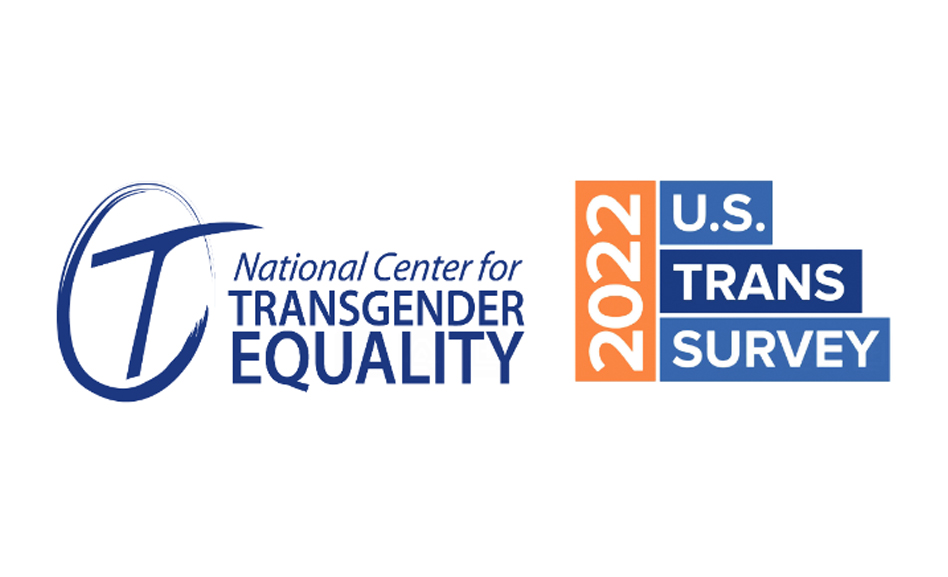
According to the U.S. Transgender Survey Early Insights report from 2022, which was released today (Wednesday, February 7) by the National Center for Transgender Equality, trans people are happier with their lives now that they have transitioned. According to a media release from NCTE outlining the findings, the report “captures the experiences” of 92,329 transgender and intersex people living across the United States and “provides unprecedented insight into what it’s like to be trans in the country today.”
Nearly all respondents, or 94 percent of those who spent at least some time with a gender other than the one they were assigned at birth, expressed satisfaction with their lives as “a lot more satisfied” (79 percent) or “somewhat more content” (15 percent), according to the survey.
More than two-thirds of trans adults said their families were supportive or very supportive of their identification and gender expression, according to respondents who also reported significant family support. Almost all responders who were receiving hormone therapy or had undergone at least one type of surgery for their gender transition felt more satisfied with their lives, demonstrating the beneficial effects of gender-affirming care on the lives of transgender people.
Trans people still experience bias and abuse at work, school, and the larger area, despite the fact that the majority of them claim to be happy with their lives and families.
Important conclusions include:
- More than one in ten (11%) of respondents who had ever held a job claimed that their gender identity or expression had caused them to be fired, forced to resign, lost the job, or laid off.
- Nearly two-thirds of respondents who were out or perceived as transgender in K–12 experienced one or more types of mistreatment or negative experiences, compared to nearly three-quarters (80%) of adult respondents (60%).
- Nearly half (48%) of those who saw a health care provider in the previous 12 months said they had at least one negative experience because they were transgender, such as being denied access to healthcare, being misgendered, having their provider use harsh or abusive language toward them, or experiencing physical abuse or rough treatment from the provider.
- The majority of survey respondents claimed to have experienced verbal, physical, or online harassment as well as being denied similar care because of their gender identity.
“It’s encouraging to see so many transgender people report career happiness when they live in accordance with their gender identity and receive the medical care they require, but we also see that trans persons face significant obstacles to living full, good, and authentic lives,” according to Dr. Sandy E. James, co-principal analyst and lead scientist for the 2022 U.S. Transgender Survey.
“These results fill a significant knowledge gap and are an essential resource for comprehending and addressing the needs of transgender people,” James continued, “as the most complete source of data about trans people in the U.S.”
According to the media release, “they are surviving when they could be thriving,” another significant study demonstrates that unequal treatment in all spheres of life continues to stand in the way of transgender people living whole lives.
These results include:
- More than one-third of respondents, or 34%, were living in poverty.
- The USTS respondents’ unemployment rate was 18%.
- In their lifetimes, nearly one-third (30%) of respondents had lived without a place to call home.
“Trans people should have access to the same societal benefits as everyone else, including good jobs, affordable healthcare, secure housing, and a sense of community safety,” according to Josie Caballero, director of the U.S. Trans Survey at NCTE. The Early Insights report emphasizes how far trans equity still needs to be achieved in the United States.
According to survey findings, popular prejudice in the areas where trans people spend their time is severing ties between families and communities. Nearly half (47%) of respondents said they had considered moving to another state as a result of state legislation that targeted transgender people unfairly (such as prohibiting access to restrooms, healthcare, or sports), and 5% said that state action had caused them to leave their home state.
Alabama, Arizona, Florida, Georgia, Missouri, North Carolina, Ohio, Tennessee, Texas, and Virginia are the top 10 states from which respondents relocated as a result of state laws targeting trans people for uneven treatment.
“Everyone deserves to be treated with respect and fairness,” said Rodrigo Heng-Lehtinen, senior director of NCTE. “We require federal and state laws to ensure that everyone, including transgender persons, is treated fairly. No one should ever experience discrimination based solely on their identity in the workplace, housing, healthcare, education, or various spheres of life. We are proud of who we are and that trans people are here to stay.”
The U.S. Transgender Survey’s results were shared in a number of reports, the first of which is the Early Insights report. According to the NCTE press release, the 2022 U.S. Transgender Survey and the Early
Insights report uphold the highest technical standards. The review was “conducted by a team of experienced researchers, guided by an advisory committee comprised of experts in studies about trans populations, and under review by the UCLA Institutional Review Board.”
92,329 people participated in the 2022 U.S. Transgender Survey from all 50 states, including the District of Columbia, American Samoa, Guam, the Northern Mariana Islands, Puerto Rico, and British defense installations abroad. Respondents ranged in age from 16+ and varied in terms of race/ethnicity, level of education, and landscape. The National Queer Asian Pacific Islander Alliance, the TransLatin@ Coalition, and the National Black Trans Advocacy Coalition collaborated with NCTE to create the survey.
Go to USTransSurvey.org to view the complete set of results from the Early Insights: A Report of the 2022 U.S. Transgender Survey statement.



